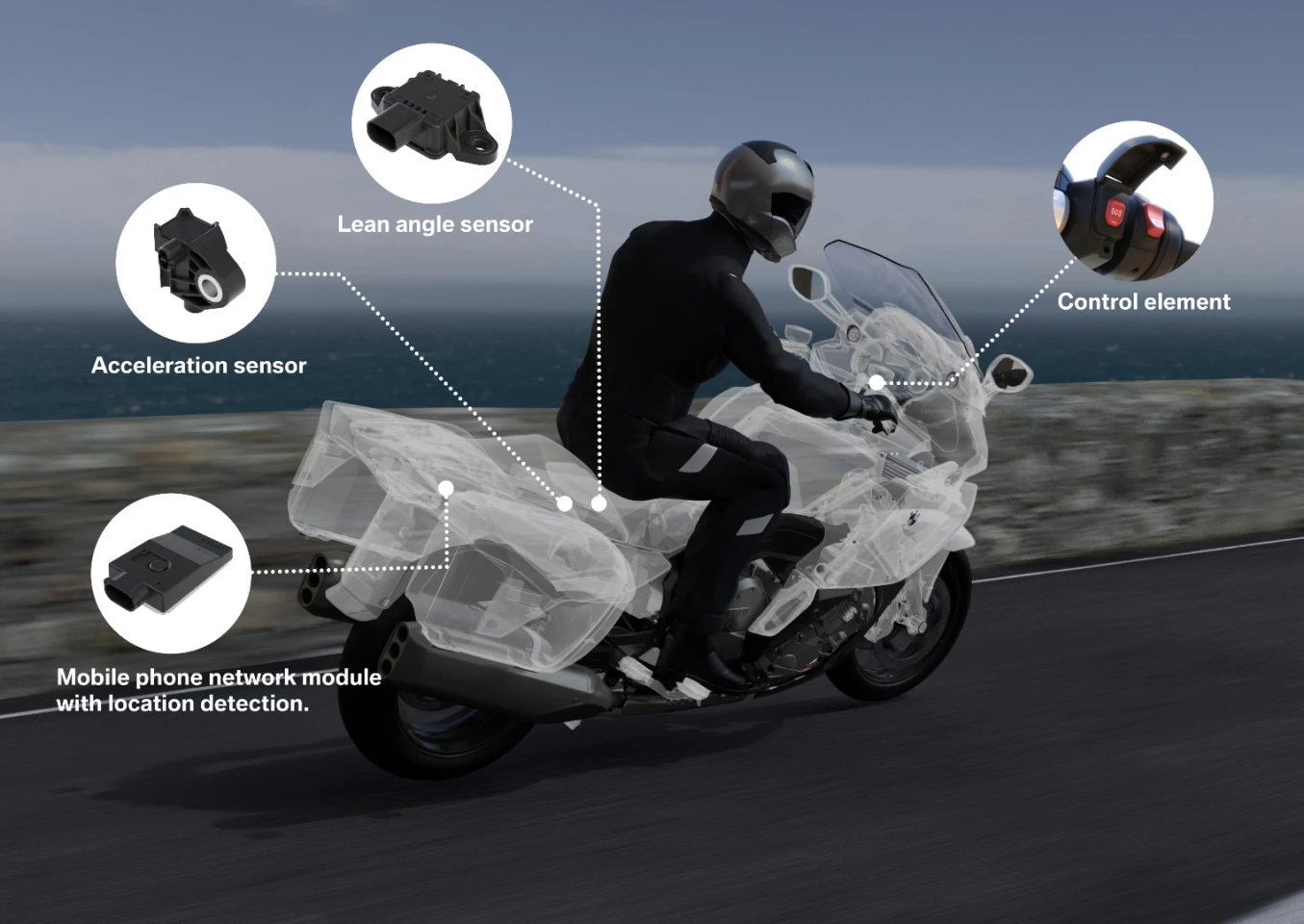Based on established automotive technology and an extended call center infrastructure in Europe, BMW Motorrad's vehicle-integrated Intelligent Emergency Call system is designed to reduce emergency service response times by as much as 50 percent when it makes its motorcycle debut early next year.
In 2018, eCall systems will become mandatory for all new cars sold in Europe, as part of a wider road safety scheme promoted by the European Commission. Multinational eCall trials in 2011, which included BMW vehicles, returned encouraging results. Emergency response times were recorded to be up to 50 percent shorter, which could translate to saving up to 2,500 lives per year according to the European Commission.
BMW is no stranger to such systems, having installed its first car application as early as 1999. In 2007, the BMW Group established an intelligent, cross-border call center infrastructure in an effort to make its European network as efficient as possible. This groundwork suggests that BMW should be ready when the new eCall legislation comes into force, and also provides the necessary foundation to build on while extending the service to the motorcycle division.
The Intelligent Emergency Call system identifies when the motorcycle has been involved in an accident and promptly informs the appropriate BMW Call Center of the accident location. The system only requires a connection to a mobile phone network; it doesn't matter which provider the rider is subscribed to, as any operational network in the area will do.

Built around a mobile phone network module with GPS location detection and equipped with two sensors that monitor lean angle and acceleration, BMW's eCall system can distinguish non-emergency situations, such as a stationary fall, or potential false alarms that could result from hitting a pothole or off-road riding. A control element at the right side of the handlebars houses an SOS button, as well as a microphone and a loudspeaker.
Once the system identifies that an accident has occurred, three possible scenarios are taken into account. In the case of a high-speed fall or collision the emergency call is triggered automatically and acknowledged by a display on the instrument panel and an acoustic signal. Emergency services are alerted and an operator from the BMW Call Center tries to establish contact with the rider via audio connection.
If the system identifies a minor fall or collision, then the emergency message will be sent with a 25 second delay, giving the rider the opportunity to cancel it before the previous scenario plays out.
Finally, the system can be triggered manually by simply pushing the SOS button. In this case a voice connection with the call center operator is necessary before the emergency services can be alerted.
According to BMW the Intelligent Emergency Call system will be available as optional equipment for its motorcycles in the beginning of 2017. Starting in Germany, the plan is to quickly introduce it to more European countries with local operators that can communicate with accident victims in their native language. As the system application spreads geographically, BMW also says that it intends to introduce it to its entire lineup, suggesting that initially it will only be compatible with certain models.
Source: BMW Motorrad






